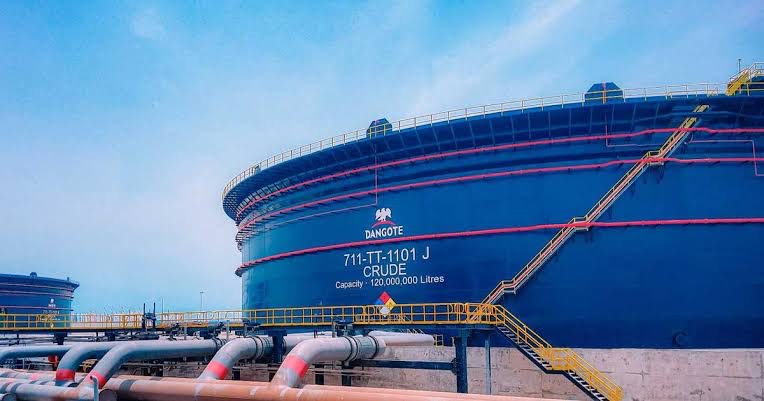Oil marketers across Nigeria confirm Dangote Refinery’s commencement of automotive gas oil (diesel) sales, as both dealers and plant officials reveal that diesel sales started last week.
According to Abubakar Maigandi, the national president of the Independent Petroleum Marketers Association of Nigeria, the refinery’s entrance into the diesel market is expected to drive down prices significantly.
Maigandi said, “The price of diesel is going to fall because of the release of products from Dangote Refinery. In fact, it is already coming down in Lagos.”
A senior management official of the refinery confirmed the commencement of diesel sales and hinted at the imminent release of Premium Motor Spirit (petrol) into the market.
Despite its recent progress, the Dangote Refinery has faced challenges in releasing refined products into the market since its official inauguration by former President Muhammadu Buhari in May 2023.
Regulatory approvals have been a major hurdle, delaying the refinery’s initial plans to introduce aviation fuel (Jet A1) and diesel into the Nigerian market.
A recent report highlighted the refinery’s struggle with regulatory approvals, which hindered its ability to meet the January deadline for product release. However, the refinery announced on January 12, 2024, that it had commenced production of diesel and aviation fuel.
Aliko Dangote, the chairman of the Dangote Group, expressed gratitude to President Bola Tinubu and various regulatory bodies for their support in realising the project.
He said, “We thank President Bola Tinubu for his support and for making our dream come true… We also thank the NNPC, NUPRC, and NMDPRA for their support. These organisations have been our dependable partners in this historic journey.”

